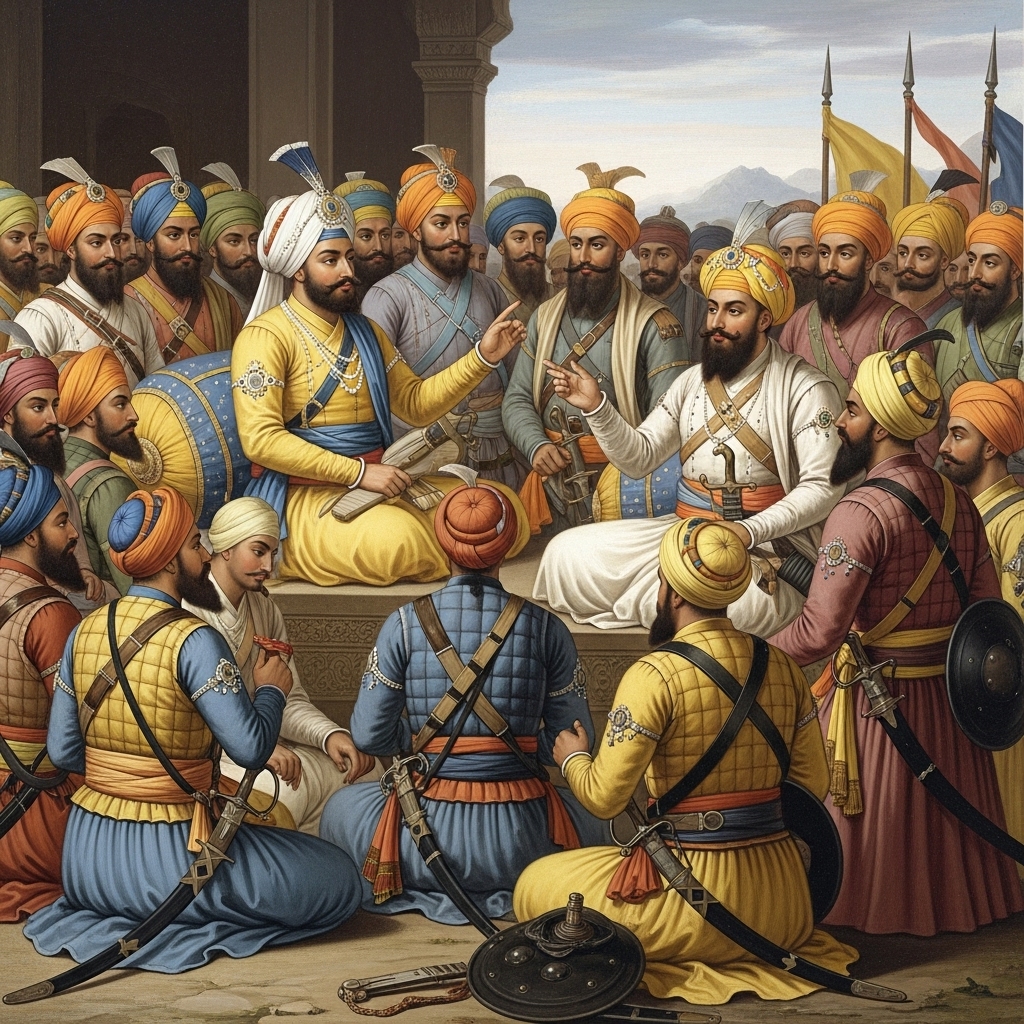🛡️ 1745 — The Birth of the Dal Khalsa The Sarbat Khalsa united at Sri Akal Takhat Sahib, organizing the Dal Khalsa into 25 formidable Jathas.

Imagine 18th-century Punjab, a land constantly under threat, where survival demanded more than just courage — it required organized might. In a pivotal moment at Sri Akal Takhat Sahib (the highest temporal seat of the Sikhs) in Amritsar, the Sarbat Khalsa (collective assembly of Sikhs) convened. They unified the various warrior bands, formally establishing the Dal Khalsa, distributing its strength into 25 cohesive Jathas (regiments or bands). This strategic move transformed fragmented resistance into a powerful, disciplined force, ready to protect the community. This organization exemplifies the Sikh principle of Miri-Piri (temporal and spiritual authority), showcasing how collective leadership and a commitment to justice can create a formidable and enduring force. It reminds us of the power of unity in the face of overwhelming odds. Reflect on how organized collective action, rooted in shared values, continues to be a beacon of strength and resilience for communities worldwide.
|

